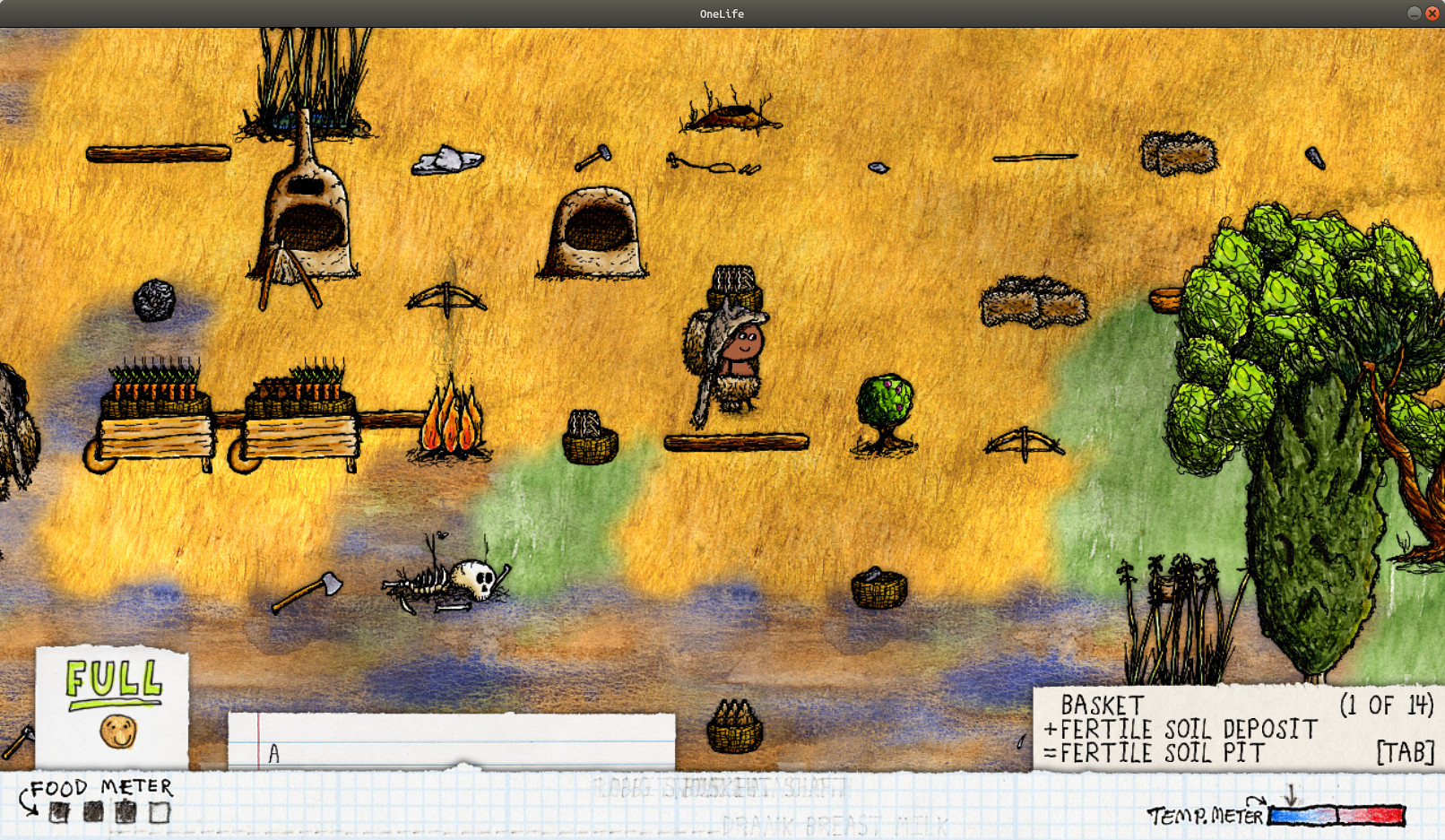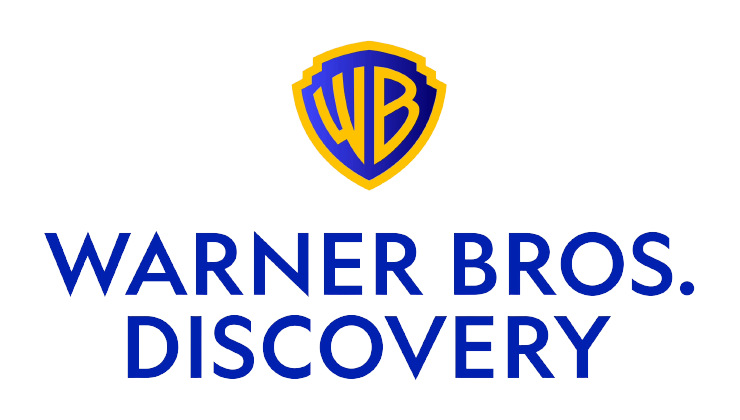The developer of One Hour One Life [Official Site] and The Castle Doctrine [Official Site] has made two interesting posts lately, one about not launching a game on Steam and one about keeping your game code and assets open to anyone.
Firstly, yes, I am being careful with my wording here. The code and assets are open, but they're not open source. As far as I can see, they don't have actual licenses and the developer just says they're public domain. It's really great to see, but not technically open source. I have to say this, or else people (rightly so) bug me about it. Now, with that out of the way…
Firstly, there's been a large number of developers concerned about the growth on Steam. How they released their games in the past on days where nothing or only a few others were releasing. Today things are rather different, today alone there's around 20 games being released on Steam (across all operating systems).
The developer in question, Jason Rohrer, is well aware of this. He's decided so far not to release One Hour One Life on Steam. Writing in this news post, it's really quite encouraging how well he's actually done. Going by one of the charts he showed off, he's gained over $67K and the game has only been out since late February and you can only purchase it directly from his site.
One thing he also said, is that he thinks game press is essentially gone. I wouldn't say I agree with that, the fact that we're here and we do generate a lot of sales for developers (thanks to same stats I can see) shows that gaming press still has a long life left in it (we're still quite small too). However, what he's saying is partly true, a lot of "press" has shifted over to places like YouTube and Twitch (we're there too, see the links), which is also a good way for people to experience a game through videos of people genuinely trying to play it so they can see if they want to buy it, it's a very different world to the written word.

Screenshot taken today in the Linux build of One Hour One Life
He says he designed One Hour One Life specifically to fit in with how things are now, something people will keep coming back to, he calls it a "a unique-situation-generator". He's not wrong either, One Hour One Life is certainly unique as a survival game, one that can create many funny stories. It's also a very strange game, one full of terrible parenting and a civilization currently no further along than what I imagine from Neanderthals. It’s a very experimental game, one that tells you quite literally nothing from the moment you’re born into it.
Rohrer also recently took to reddit, to post about "How I made $670K over the past 8 years with 100% Open Source games" (again, see my note above though). In this post, Rohrer talked about how you can sell games, even when they are open for anyone to get in some form. What he's saying for the most part is exactly right too, people will 99% of the time pay for the convenience of just downloading a ready working build. I know I will pay for that convenience, I'm also much more likely to do so if the code is open source too.
All encouring and interesting to read, I do like his views on DRM and how you really can't stop people doing what they want, it's such a waste of time and effort in the end. What are your thoughts?
For me as a end user however I'm now reached that point in life where I'm just to old and tired to purchase a game unless it's on Steam. Far gone are the days where I scheduled "let's scan every site I bought a game on to see if there have been any updates".
Steam contrary to console platforms are not signing exclusive deals, you can release your game everywhere, GOG, your site, Itch, Steam, etc.
Its Steam, not stupid Monsanto or Bayer.
Quoting: orochi_kyoThese extreme hipsters are annoying, I support open software and indie gaming, but if big companies opens a door to developers for publish their games, why not taking the chance?Exactly how did you work in Monsanto here? Let's not go down the rabbit hole of those pro pseudoscience anti-GMO folks.
Steam contrary to console platforms are not signing exclusive deals, you can release your game everywhere, GOG, your site, Itch, Steam, etc.
Its Steam, not stupid Monsanto or Bayer.
Quoting: F.UltraExactly how did you work in Monsanto here?Probably their Mafia-style business practices, but I agree, let's keep this on topic.
Yes, the steam is full of games and your's could be lost in the flood of titles. But there will always be someone who will notice.
But back to open source games. Can you imagine how many games will be ported to Linux, if the companies made them open. Just say not when they releasing them, but few years later. Also this could really help to create awesome gaming titles. I don't think this will affect theirs sale.
https://en.wikipedia.org/wiki/Open-source_license#Public_domain_as_open_source_license
Quoting: tuubiWhat Mafia-style business practises? If you are talking about them suing innocent farmers or suicides in India then you have been told lies and myths.Quoting: F.UltraExactly how did you work in Monsanto here?Probably their Mafia-style business practices, but I agree, let's keep this on topic.
Quoting: ripperPublic domain is open source:Public Domain is not recognised by all countries, especially here in Europe.
https://en.wikipedia.org/wiki/Open-source_license#Public_domain_as_open_source_license
Last edited by F.Ultra on 16 Mar 2018 at 8:00 pm UTC
Quoting: F.UltraDon't you mean "fake news"? :PQuoting: tuubiWhat Mafia-style business practises? If you are talking about them suing innocent farmers or suicides in India then you have been told lies and myths.Quoting: F.UltraExactly how did you work in Monsanto here?Probably their Mafia-style business practices, but I agree, let's keep this on topic.
Quoting: tuubiNo, "fake news" are usually used by people like Trump when they don't like the truth.Quoting: F.UltraDon't you mean "fake news"? :PQuoting: tuubiWhat Mafia-style business practises? If you are talking about them suing innocent farmers or suicides in India then you have been told lies and myths.Quoting: F.UltraExactly how did you work in Monsanto here?Probably their Mafia-style business practices, but I agree, let's keep this on topic.
You lost me right there. :P
Quoting: F.UltraNot that I really fancy getting into this kind of trolly discussion, but back at university I came across Vandana Shiva as a respected scientist, and she was quite angry about Monsantos practices. Wikipedia paints a sort of complex picture:Quoting: orochi_kyoThese extreme hipsters are annoying, I support open software and indie gaming, but if big companies opens a door to developers for publish their games, why not taking the chance?Exactly how did you work in Monsanto here? Let's not go down the rabbit hole of those pro pseudoscience anti-GMO folks.
Steam contrary to console platforms are not signing exclusive deals, you can release your game everywhere, GOG, your site, Itch, Steam, etc.
Its Steam, not stupid Monsanto or Bayer.
https://en.wikipedia.org/wiki/Monsanto#India
Difficult to link suicides to cotton seeds fully I guess, but still, who loves a giant corporation? Who defends Monsanto except trolls wanting me to write this so that they can write something stupid back? :P
Quoting: F.UltraGMO crops are a lot like DRM on games. DRM makes games harder to play and maintain, and doesn't do what it's advertised to do (stop piracy), but it does allow invocation of draconian laws to control consumer behaviour (and in some cases, the behaviour of competitors). Genetic modification is bad for the crops and the consumers, but the point is it lets you patent those crops and thereby shut down competition, control farmers, etc. For the corporations involved, the actual benefits any given genetic modification is supposed to provide are almost beside the point (except "Round-up Ready", because that lets them sell vastly more herbicide).Quoting: orochi_kyoThese extreme hipsters are annoying, I support open software and indie gaming, but if big companies opens a door to developers for publish their games, why not taking the chance?Exactly how did you work in Monsanto here? Let's not go down the rabbit hole of those pro pseudoscience anti-GMO folks.
Steam contrary to console platforms are not signing exclusive deals, you can release your game everywhere, GOG, your site, Itch, Steam, etc.
Its Steam, not stupid Monsanto or Bayer.
Don't get me wrong, I find the technologies of genetic modification fascinating. But, they are currently not mature. Before CRISPR, the main approach involved sticking a gene on a tiny golden cannonball and shooting the thing randomly into a cell's nucleus and hoping something stuck. Imagine shooting code randomly into a computer program and expecting it to do only whatever that piece of code was "supposed" to be for. If the patenting angle didn't allow for monopoly profits they'd still be largely in the lab.
Quoting: ripperPublic domain is open source:Did you even read what you linked? It specifically mentioned a license that was accepted. In this case, the developer is not using that license, they're rolling their own "do what you want" text, which still is not open source. Public domain in their eyes, not in wider legal eyes.
https://en.wikipedia.org/wiki/Open-source_license#Public_domain_as_open_source_license
Quoting: buenaventuraSeriously? Vandana Shiva is a horrible person that pretends to be scientific but who in reality is a pseudoscience woo peddler. That she is against Golden Rice should tell you just how crazy she is (better to let thousands of children suffer from blindness and death than to grow a GMO, really?!).Quoting: F.UltraNot that I really fancy getting into this kind of trolly discussion, but back at university I came across Vandana Shiva as a respected scientist, and she was quite angry about Monsantos practices. Wikipedia paints a sort of complex picture:Quoting: orochi_kyoThese extreme hipsters are annoying, I support open software and indie gaming, but if big companies opens a door to developers for publish their games, why not taking the chance?Exactly how did you work in Monsanto here? Let's not go down the rabbit hole of those pro pseudoscience anti-GMO folks.
Steam contrary to console platforms are not signing exclusive deals, you can release your game everywhere, GOG, your site, Itch, Steam, etc.
Its Steam, not stupid Monsanto or Bayer.
https://en.wikipedia.org/wiki/Monsanto#India
Difficult to link suicides to cotton seeds fully I guess, but still, who loves a giant corporation? Who defends Monsanto except trolls wanting me to write this so that they can write something stupid back? :P
There is a reason why the League of Nerds calls her the Nicolas Cage of woo movies: View video on youtube.com
Oh and the Indian suicides have been happening for a long time way before Monsanto (or any other GMO company) entered the Indian market.
Last edited by F.Ultra on 17 Mar 2018 at 1:02 am UTC
Quoting: Purple Library GuyNo that is not how it works. Before GMO things worked that way (by cross-breading or e.g atomic gardening). Genetic modification is done for the benefit of the crop and the farmer so no it's not bad for the crop and it's not bad for the consumer either. Where do you people get these ideas from?Quoting: F.UltraGMO crops are a lot like DRM on games. DRM makes games harder to play and maintain, and doesn't do what it's advertised to do (stop piracy), but it does allow invocation of draconian laws to control consumer behaviour (and in some cases, the behaviour of competitors). Genetic modification is bad for the crops and the consumers, but the point is it lets you patent those crops and thereby shut down competition, control farmers, etc. For the corporations involved, the actual benefits any given genetic modification is supposed to provide are almost beside the point (except "Round-up Ready", because that lets them sell vastly more herbicide).Quoting: orochi_kyoThese extreme hipsters are annoying, I support open software and indie gaming, but if big companies opens a door to developers for publish their games, why not taking the chance?Exactly how did you work in Monsanto here? Let's not go down the rabbit hole of those pro pseudoscience anti-GMO folks.
Steam contrary to console platforms are not signing exclusive deals, you can release your game everywhere, GOG, your site, Itch, Steam, etc.
Its Steam, not stupid Monsanto or Bayer.
Don't get me wrong, I find the technologies of genetic modification fascinating. But, they are currently not mature. Before CRISPR, the main approach involved sticking a gene on a tiny golden cannonball and shooting the thing randomly into a cell's nucleus and hoping something stuck. Imagine shooting code randomly into a computer program and expecting it to do only whatever that piece of code was "supposed" to be for. If the patenting angle didn't allow for monopoly profits they'd still be largely in the lab.
You can patent any form of seed and in fact all the cross-breed and clones that the non-GMO farmers use are also patented so companies like Monsanto does not create GMO:s in order to be able to patent the seeds, patenting is a completely different issue. And btw the patent on round up have expired.
And no GMO producers like Monsanto can not control the farmers, it's the farmers who choose to use GMO crops due to their added benefits and most farmers even buy from different manufacturers simultaneously in order to see which crop grows the best on their specific soil.
View video on youtube.com
Last edited by F.Ultra on 17 Mar 2018 at 1:00 am UTC
Quoting: ripperPublic domain is open source:Indeed. It is the only true expression of a grant of freedom, as there is no "let or hindrance" of any sort. The GPL, by way of contrast, is actually quite a restrictive licence.
https://en.wikipedia.org/wiki/Open-source_license#Public_domain_as_open_source_license
There are many viewpoints regarding both licencing and rights management, and none of them are unequivocally "right" or "fair". I understand that some people dislike DRM and want everything freely available, but equally I understand that that this is not reasonable to do when you invest $100m in developing a product.
On a small scale, someone like Jason Rohrer can take the public domain route because the risk of loss is low. A small number of people will take the code and assets and work out how to get the game for free. Most who want the game will buy it, and there is no real prospect of large scale piracy, because it simply is not worth a pirate's time.
On a large scale, say "Fallout 4", if the code and assets were released the likelihood of loss increases greatly. You would still get a few people working out how to compile and run the game, but there is a greater probability that those builds will be put online and used by many people instead of purchasing the game. The number of potential buyers/players also attracts commercial piracy, sometimes on such a grand scale that the majority of sales are fakes.
Quoting: liamdaweOf course I did. If CC0 is considered open source, why wouldn't "vanilla" public domain be considered open source? I believe that saying "I hereby give up all rights on this work and place it into the public domain" makes the intent very clear. I don't think anyone would win at court suing someone for copyright, if he/she provided such a statement with his/her work. Of course, none of us are lawyers. Also, I haven't bought the game so I don't know what their source code says. I just see "open source" written on the website.Quoting: ripperPublic domain is open source:Did you even read what you linked? It specifically mentioned a license that was accepted. In this case, the developer is not using that license, they're rolling their own "do what you want" text, which still is not open source. Public domain in their eyes, not in wider legal eyes.
https://en.wikipedia.org/wiki/Open-source_license#Public_domain_as_open_source_license
Edit: I looked up this more, and here's an opinion agreeing with you:
https://opensource.org/node/878
and here's one agreeing with me:
https://www.gnu.org/licenses/license-list.html.en#PublicDomain
https://www.gnu.org/philosophy/categories.html.en
Both state that using something like CC0 is a much preferable solution, which I completely agree with. In the end, I guess I wouldn't outright say that public domain is or is not open source, but rather say that there's no proper/standardized license attached, which might be problematic in certain cases.
Last edited by ripper on 17 Mar 2018 at 7:58 am UTC
Last edited by Eike on 17 Mar 2018 at 9:07 am UTC
Quoting: Eike.Excellent point.












 How to setup OpenMW for modern Morrowind on Linux / SteamOS and Steam Deck
How to setup OpenMW for modern Morrowind on Linux / SteamOS and Steam Deck How to install Hollow Knight: Silksong mods on Linux, SteamOS and Steam Deck
How to install Hollow Knight: Silksong mods on Linux, SteamOS and Steam Deck